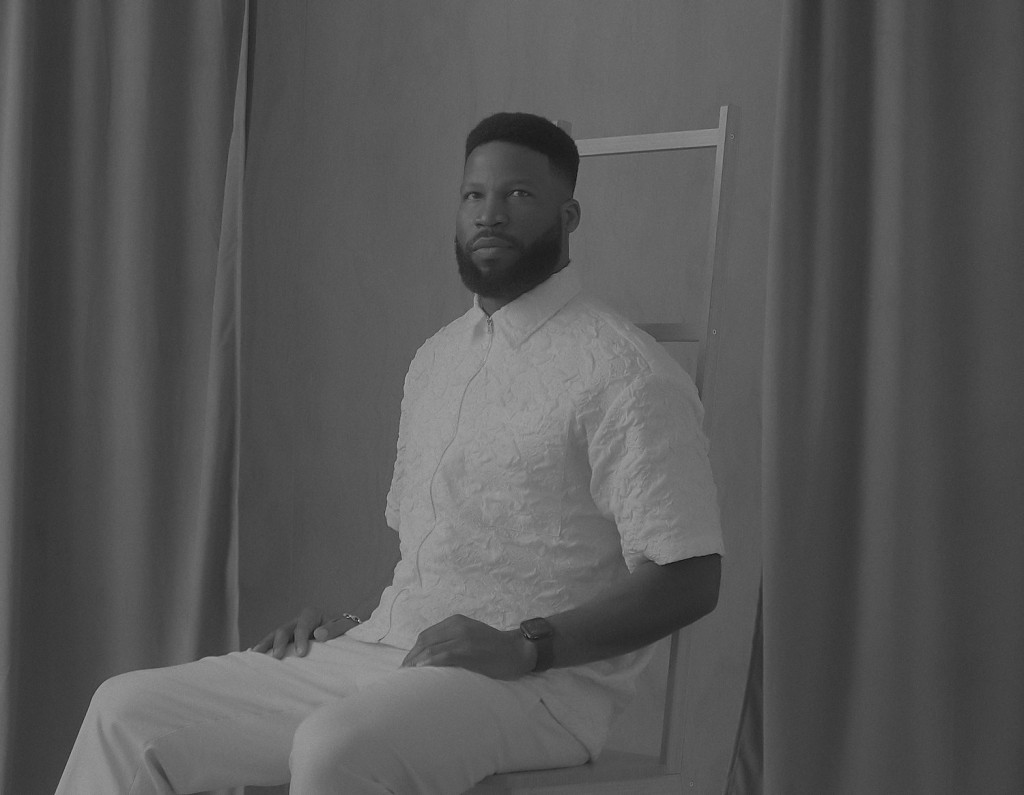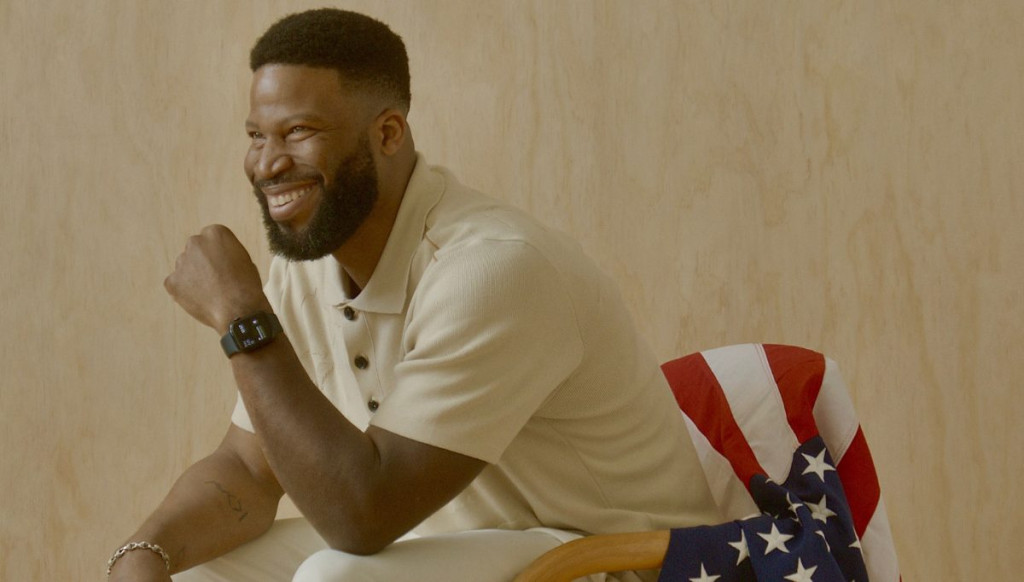Dui Jarrod has never been afraid of the truth. Whether it’s through his Emmy-nominated work on King Ester, the nuanced intimacy of Brooklyn.Blue.Sky, or his emotionally rich writing for Tyler Perry’s Ruthless, the writer and director, has always been drawn to stories that hold up a mirror to the lived Black experience.
But with his latest project, Jarrod isn’t just holding up the mirror; he’s stepping inside the reflection.
His new one-man stage play Blank Pages is a radical act of vulnerability. Debuting July 11–12 at The Mark O’Donnell Theater in Brooklyn, it marks Jarrod’s first return to the stage in years, and it’s personal.
The show unpacks childhood trauma, emotional inheritance, and the mental and spiritual toll of being both an artist and a Black man in America. It’s as much a healing ritual as it is a performance, told from the inside out.
In many ways, Blank Pages is a culmination of everything Jarrod has built his creative voice around — authenticity, complexity, and courage.
Known for crafting multidimensional characters and emotionally layered narratives, Jarrod’s work consistently challenges the limits of what Black storytelling can be. He was the first Black man nominated in the same year for both writing and directing at the Daytime Emmys — a milestone that made headlines, but, as Jarrod is quick to point out, didn’t open the doors he thought it would.
Instead, he took his power back. Blank Pages is the result.
We caught up with Jarrod ahead of opening night to talk about what it really costs to tell the truth onstage, the emotional weight of legacy, and why he’ll never write for anyone but himself again.

What was the emotional cost of writing and performing a piece that exposes so much of your internal world?
I’ve always had an interesting relationship with my audience. Most of the time, I know who they are, so I’ve always written and directed with them in mind, along with myself. That takes a toll, because you can’t serve both at the same time.
Locking in on just me, on my truth alone, was deeply emotional. There were things I had experienced and completely forgotten about. But when you have to access that, redefine those experiences, that costs something.
I looked back and realized, damn, that was physical abuse. Damn, that was sexual assault. Damn, my dad was not a good father. That’s heavy. But to face it, to embrace it, and to forgive? I’ll never be the same writer or director after this.
In the play, you explore the idea of being both the subject and the commodity. How do you personally navigate the tension between artistic integrity and audience expectation?
That’s really what the show is about. Do I consider the audience when I create? I did in the past. I won’t in the future. My voice will only get stronger from here.
“This is not just art. This is self-possession.” Can you unpack what that means to you as a Black male artist today?
I’ve often hidden behind the art. I’ve never just stood in my manhood and said, “This is who I am.”
I’m a product of God. Not a product. And that needs to be said out loud.
Blank Pages touches heavily on the weight of legacy. What does legacy mean to you now?
Legacy is ancestral. It’s our connection to the roots of who and why we are.
America has lied to generations in my family about equality, fairness, and financial stability. And I believed those lies. I believed that if I worked hard, I could earn an opportunity. That didn’t happen. That if I got the right credentials, I’d get access to the American dream. That didn’t happen either.
If I received recognition from major institutions, I’d be undeniable. I was the first Black man nominated for both writing and directing in the same year at the Daytime Emmys. Two nominations. No opportunities.
So now that I know the truth, I’m free to chart my own path and honor the long legacy of Black excellence that my family began generations ago. The Moorman legacy is my opportunity.
Why was now the right time to return to the stage after your success in film and television?
It’s a reintroduction to the man I’ve become.
I’ve learned that manhood sometimes requires putting yourself in harm’s way to earn respect. The stage is where I began. So the stage is where I’ll begin again.
You’re also writing for the current season of Tyler Perry’s Ruthless. What are the shared themes between the series and Blank Pages?
Both stories deal with control, whether it’s stripped from you or whether you’ve quietly surrendered it. I’ve experienced both, often at my own hands and to my own detriment.
If you really look at Ruthless, it’s a story about manipulation, access to power, and belief systems. But underneath all that, it’s about identity and how people survive inside structures that promise salvation but deliver confinement. That’s an American reality.
Blank Pages is quieter, more internal, but it’s wrestling with the same question: Who does art really serve, the artist or the audience? That’s the heart of the piece. It’s not just a play, it’s a confrontation with the expectations placed on Black artists and the compromises we’re forced to make just to belong.
What’s the biggest lesson you’ve taken from working inside Tyler Perry’s machine?
Don’t write anything you don’t believe in.
Ruthless is someone else’s vision. And to be honest, it’s a vision I never fully understood. One thing I’ve always done, as a man, is give women the credit, complexity, and power I see in my women friends every day.
It was incredibly hard to be in a room tasked with making women suffer—that was the theme. That’s why my episode, “Soup de Jour,” took a different approach. I wrote it through a different lens. And everybody loved that episode.
Because I believe women are powerful. Women are smart. Women are strong. And I’m proud I wrote it that way. And I’m sincerely grateful Tyler Perry kept my episode as it was written.
Get your tickets to Dui Jarrod’s Black Pages here.
Photo Credit: Courtesy of Dui Jarrod




